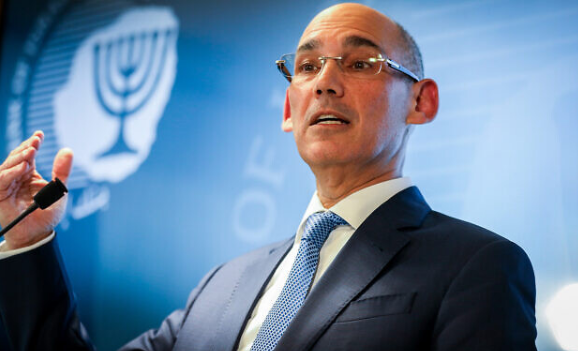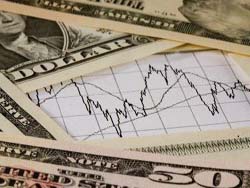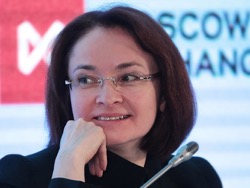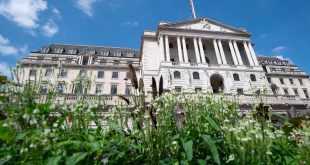Central bank governor sees need for higher borrowing costs than previously forecast to control inflation
Two days after the Bank of Israel raised the benchmark interest rate for the sixth meeting this year, governor Amir Yaron signaled on Wednesday that the central bank’s monetary tightening is not finished amid expectations that inflation will continue in the coming months.
The central bank’s monetary committee, led by Yaron, on Monday decided to raise the key lending rate by 50 basis points from 2.75% to 3.25% in a move to tame an accelerating inflation environment. Ahead of the decision, economists were split between expectations for a hike of 50 basis points and 75 basis points. In early October the key lending rate was raised by 75 basis points for a second straight meeting.
Speaking at the annual conference of the Finance Ministry’s salary department, Yaron said that the rate hike marked “another significant increase,” and hinted at the need for higher borrowing costs to reign in inflation.
Bank of Israel Governor Amir Yaron speaks during a press conference in Jerusalem, on April 11, 2022. (Flash90)
Two days after the Bank of Israel raised the benchmark interest rate for the sixth meeting this year, governor Amir Yaron signaled on Wednesday that the central bank’s monetary tightening is not finished amid expectations that inflation will continue in the coming months.
The central bank’s monetary committee, led by Yaron, on Monday decided to raise the key lending rate by 50 basis points from 2.75% to 3.25% in a move to tame an accelerating inflation environment. Ahead of the decision, economists were split between expectations for a hike of 50 basis points and 75 basis points. In early October the key lending rate was raised by 75 basis points for a second straight meeting.
Speaking at the annual conference of the Finance Ministry’s salary department, Yaron said that the rate hike marked “another significant increase,” and hinted at the need for higher borrowing costs to reign in inflation.
“There is a high probability this is not the end of the process either,” Yaron said. “It is not improbable that in the first half of 2023 we will reach an interest rate environment higher than the 3.5% forecast by our research division.”
Since the Bank of Israel started to lift the benchmark rate from an all-time low of 0.1% in April, it has accelerated the pace of hikes in recent months in a move to bring inflation back within the government’s 1% to 3% annual target range.
Yaron cautioned that price growth for the last twelve months has climbed above the upper limit of the target range and stands at 5.1%, while being significantly lower than in most developed countries.
“It is important for me to emphasize that we at the Bank of Israel are determined to bring inflation back to its target, and that is why we have accelerated the process of raising interest rates in recent months,” Yaron said. “Looking ahead, in the next two to three months we expect to continue to see high [consumer price] indices, probably rising higher than the current figure”.
“Inflation is a process, and you have to look at the overall picture, and not at one month or another,” he noted.
Rafi Gozlan, chief economist at IBI Investment House, noted that the Bank of Israel’s more muted interest rate move on Monday aligns with a tendency by the world’s leading central banks, led by the US Fed, for a moderation in the pace of rate increases amid expectations for a slowdown in the global economy.
“Despite the decision to slow down the rate of interest rate increases, the high inflation environment means a continuation of the trend of interest rate increases in the upcoming decisions as well,” Gozlan wrote in a research note.
Gozlan expects borrowing costs to rise to 4% during the first half of 2023.
According to the Bank of Israel’s estimates and forecasters from the capital market, inflation is expected to begin declining at the end of the first quarter of 2023, then return to the middle of the target range in the summer, Yaron said.
“The economy has grown in recent quarters at impressive rates and the labor market is still tight,” Yaron remarked. “Alongside these there are also challenges.”
According to the forecast by the Bank of Israel’s research division published in October, Israel’s economy is expected grow at a rate of 6% in 2022, and 3% next year.








